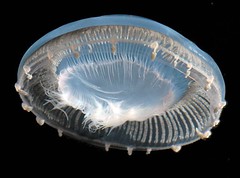Someone finally has the cajones to fight back against the RIAA
It's about time. While it is pretty clear that it is illegal to share music the means that the RIAA used to fight it were strong-armed and bullying to say the least.
A Harvard Law School professor has launched a constitutional assault against a federal copyright law at the heart of the industry's aggressive strategy, which has wrung payments from thousands of song-swappers since 2003.My Way News - Law professor fires back at song-swapping lawsuits
The professor, Charles Nesson, has come to the defense of a Boston University graduate student targeted in one of the music industry's lawsuits. By taking on the case, Nesson hopes to challenge the basis for the suit, and all others like it.
Nesson argues that the Digital Theft Deterrence and Copyright Damages Improvement Act of 1999 is unconstitutional because it effectively lets a private group - the Recording Industry Association of America, or RIAA - carry out civil enforcement of a criminal law. He also says the music industry group abused the legal process by brandishing the prospects of lengthy and costly lawsuits in an effort to intimidate people into settling cases out of court.


